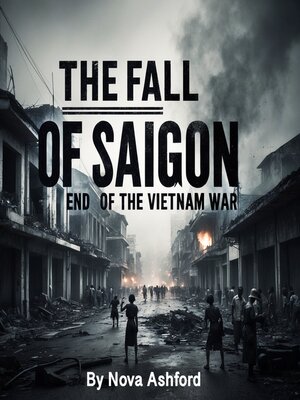
Sign up to save your library
With an OverDrive account, you can save your favorite libraries for at-a-glance information about availability. Find out more about OverDrive accounts.
Find this title in Libby, the library reading app by OverDrive.



Search for a digital library with this title
Title found at these libraries:
| Library Name | Distance |
|---|---|
| Loading... |
In the final phase of the Vietnam War, North Vietnam's military strategy shifted into high gear. Following the 1973 Paris Peace Accords, which led to the withdrawal of U.S. troops, the North Vietnamese leadership viewed the South as vulnerable and unprotected. They seized this opportunity to begin a calculated and aggressive push toward Saigon. With the People's Army of Vietnam (PAVN) leading the offensive, key cities and regions across South Vietnam began to fall in rapid succession. Unlike earlier phases of the war, which were marked by a slow grind of guerrilla warfare and jungle battles, this stage saw well-coordinated, large-scale military campaigns. The North's confidence was bolstered by the perception that American military support would not return in a meaningful way.
This advance was not just a military endeavor—it was psychological. Each victory in the North's campaign chipped away at the morale of South Vietnamese forces. Soldiers deserted in droves, supplies were stretched thin, and leadership at the local and national levels began to falter under pressure. In places like Ban Me Thuot and Pleiku, the speed of the North's takeover stunned both local populations and the South Vietnamese military, who had grown reliant on U.S. support during prior conflicts. Fear and confusion spread among civilians, many of whom began fleeing their homes in anticipation of the advancing northern troops.
The North Vietnamese did not rely on brute force alone. They combined strategic military planning with psychological operations to deepen the sense of inevitable defeat among South Vietnamese soldiers and citizens. Leaflets and radio broadcasts promised fair treatment to those who surrendered and warned of dire consequences for those who resisted. The result was an erosion of will more powerful than any bombing campaign. Defenses crumbled not only because of lack of resources, but because of fear and fatigue.







